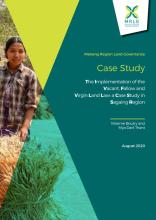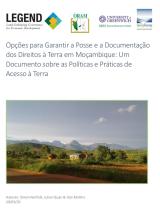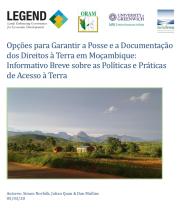Land Library Search
Through our robust search engine, you can search for any item of the over 73,000 highly curated resources in the Land Library.
If you would like to find an overview of what is possible, feel free to peruse the Search Guide.
/ library resources
Showing items 1 through 9 of 38.ILC and Welthungerhilfe with support from GIZ celebrated the 10th anniversary of the Guidelines’ endorsement by launching the VGGT+10 Initiative with the goal to take stock and assess to which degree the Guidelines have been used as an orientation for national -level tenure reform processes and a
Key Messages and Recommendations
• Combating desertification and land degradation while mitigating the effects of drought can secure long-term socio-economic benefits for people living in drylands and reduce their vulnerability to climate change.
The aim of this paper is to consolidate lessons from existing evidence that demonstrates the role of equitable access and tenure security to land in achieving sustainable food systems transformation, and subsequently, for the overall achievement of the SDGs.
This article discusses the inherent limitations of law in transitional justice processes regarding land grievances. Through analysis of the case of Timor-Leste (East Timor), a country marked by post-colonialism, post-authoritarianism, and post-conflict.
This Case Study looks at the implementation of the Vacant, Fallow and Virgin Lands Management Law (VFV Law) in seven villages in Sagaing Region, to assess the practices on the ground and how the law impacts the land tenure security of smallholder farmers.
The Sustainable Development Goals (SDGs) 1.4.2 and 5.A.1 refer to the strengthening of women’s land and property rights as a fundamental pathway towards poverty reduction and women’s empowerment.
This Briefing Paper is based on the outcomes and lessons from projects recently completed in Mozambique, funded by DFID’s LEGEND programme, wider analysis conducted by that programme, and the knowledge and practical experience of the authors.
Um dos principais aspectos do quadro legal moçambicano de terras é que os cidadãos Moçambicanos podem adquirir direitos de posse por herança, por ocupação pacífica ou por canais costumeiros.
Este documento informativo é baseado nos resultados e lições aprendidas em projectos realizados recentemente em Moçambique, financiados pelo programa LEGEND do DFID, nas análises mais amplas conduzidas por esse programa, e no conhecimento e experiência prática dos autores.





